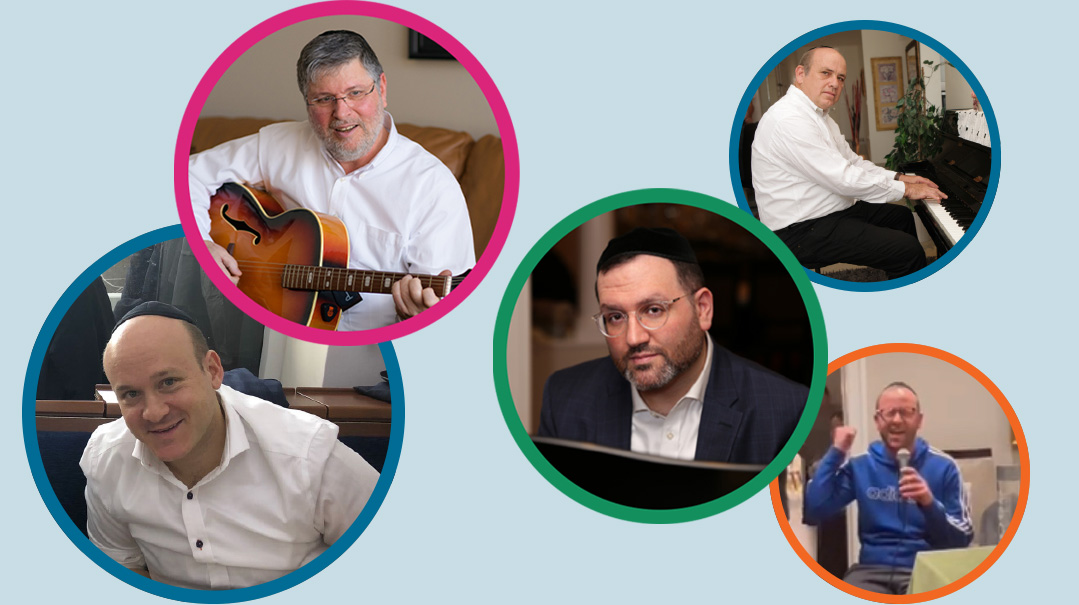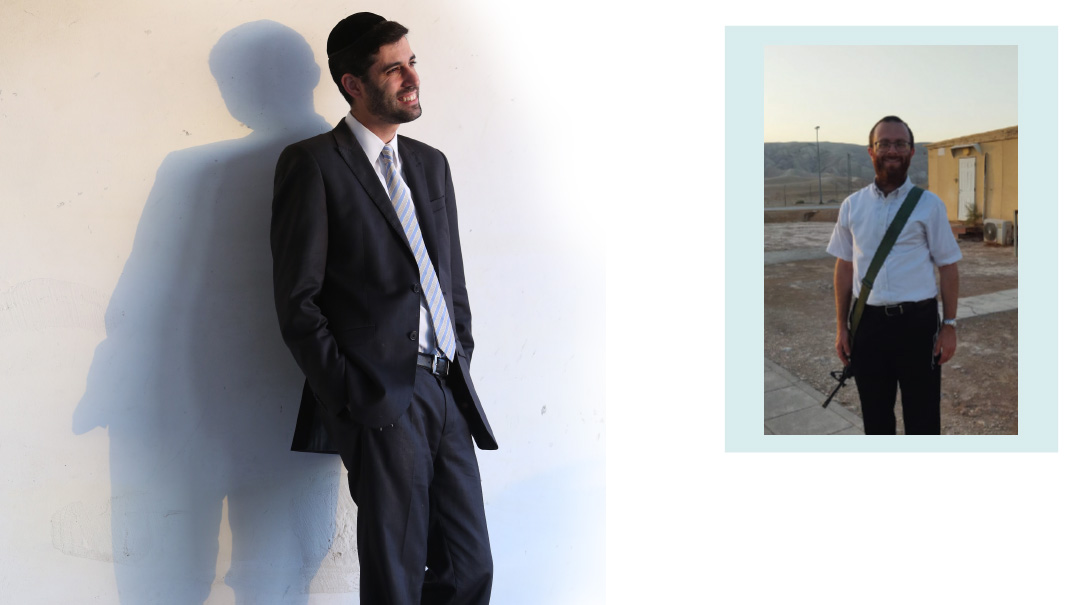Buried Treasures
| January 31, 2023Do you remember a song that lay dormant until its time finally came?

Tu B’Shevat is the time when bare-branched, snow-laden trees begin to come back to life. As the sap starts to rise deep within the roots, there is an assurance that spring will come, and those withered branches will yet blossom.
Songs, too — even some really good ones — can wind up long-forgotten, sometimes for years, until the time comes from them to burst into the limelight. Do you remember a song that lay dormant until its time finally came?
composer and arranger
MOSHE LAUFER
There are so many songs that lie around waiting for their proper time and messenger. “Vekareiv Pezureinu” waited a few years in my drawer before MBD took it. My song “Shehecheyanu” was sitting by Avraham Fried for a few years as he was undecided about it, until eventually Yaakov Shwekey came on to the scene, took the song for his first album, and made a huge hit out of it. Fried didn’t mind, though. When I see him, he always tells me that everything is arranged from Above, and the song obviously wasn’t supposed to be his.
Yossi Green’s song “Tanya” on the other hand, which I arranged, was definitely destined for Fried. There was a really popular chassidish singer at that time named Dov Hoffman, and he was going to sing “Tanya,” but it waited around a few years — he never felt the time was right for the song, and Fried sang it in the end.
composer and producer
ELI GERSTNER
A long time ago, I wrote a song and called it “Chikka Oy,” because that was how it sounded, almost like the plucking of a guitar. It was a happy, fun song, but I wrote it just for the fun of composing and then put it away, thinking possibly it would be Yeshiva Boys Choir material one day. Close to 15 years later, I was working on the Chizuk Project with Jeremy Strauss, in the aftermath of Covid and other tragedies. We knew we wanted something upbeat and happy that would make people smile when they heard it. We knew we wanted Shmueli Ungar’s energetic presentation. But we didn’t have a niggun that could hit that spot yet. Then I remembered “Chikka Oy.” We renamed it the “Chizuk Niggun,” Shmueli knocked it out of the park, and I get such a kick seeing videos of people smiling and laughing when it’s being played.
Then there are songs that are released, but only come into the limelight years later. I wrote “Odcha Hashem Bechol Levavi” as a thank-you to Hashem when my son was born. We released it on Chevra 2, but it didn’t get that much attention or exposure at the time, even though it was a song of thanks. Now, some 20 years later, the song has been picked up and is played at chuppahs. If Hashem wants a song to go somewhere, it will. Be patient — it can take two decades in the process.
composer and singer
ABIE ROTENBERG
The song “Nothing in Your Life,” sung by Mordechai Shapiro on Journeys 5 and released in 2022, was actually written in the summer of 2010. I was moved by the images of the suffering caused by the devastating earthquake and tsunami that hit the island of Haiti in the Caribbean, killing an estimated 220,000 people and impacting another three million. As aid poured into the country, it struck me that for all humankind, there’s nothing more meaningful than helping others who are in distress or pain. You can achieve other “wonderful things, even significant things,” such as professional and creative goals, but nothing will bring more joy than to “give your heart, give your love, give of yourself.” The song was a real “Journeys-style” song, so it stayed on the shelf for close to a dozen years until we had enough material to create another full Journeys album.
As an aside, Ezer Mizion used this song as a soundtrack for an inspiring video. As the largest bone marrow registry in the Jewish world, the words “giving of yourself to help another” were particularly appropriate.
composer
ELIE SCHWAB
Back in 2010, I was asked by a popular singer to compose a song for a concert he’d be holding in Israel just a couple of weeks later. Given the broad and diverse spectrum of Jews expected at the concert, I went with the pasuk “Vayehi b’Yeshurun melech b’hisasef rashei am, yachad shivtei Yisrael.” I added lyrics in Ivrit, based on an interpretation of that pasuk by my great-grandfather, Rav Shimon Schwab, in his sefer Ma’ayan Beis Hashoeivah. I composed an initial draft, gave it a lift a week later, went back and forth with the artist and his producer, added some finishing touches, and, with just a few days left, I recorded a quick guide track — but we just didn’t make the deadline. While I went on to compose other songs for that artist, “Yachad” was left on the back burner.
While I usually take the time to present singers with my vision by producing a quality demo, in the case of “Yachad,” I never invested more time, but simply passed along my rough and cheap track to a number of singers. After several years, just about every singer and producer in Jewish music had passed on the song. I wrote it off as one of those melodies that would never see the light of day.
One day, Naftali Schnitzler reached out seeking an upbeat song for Beri Weber’s next album, Ben Melech. I sent him a bunch of old and newer tracks, and Naftali immediately pinpointed “Yachad” as a diamond in the rough. It went on to become a hit at weddings, concerts, and summer camps, and eight years later it’s still being played and sung all over.
composers (TYH Nation)
BLUMSTEIN BROTHERS
The song “Mi LaShem Elai,” sung by Zusha on the TYH Mevakshei Hashem album, comes to mind. It was written over ten years ago, but at that time we were writing more “poppy” music, so this song, which is a bit more Carlebach style, was unusual for us and for the market. For a long time, Yehuda Green was considering using the song. When he decided against it, Yonatan Razel was going to take it. He was serious enough about it to start writing an arrangement, but then it didn’t happen (although Yonatan’s intro is used in the final production).
When it came to producing our own album, our focus had changed a lot. The music we put out today is what we call “farbrengable.” Of course, it’s still music that entertains, but more importantly, it’s meant to elevate the neshamah. We knew that “Mi LaShem Elai” was just waiting all these years for our own album. Now it’s one of our most streamed songs on all platforms as well as a popular request at Zusha’s concerts.
(Originally featured in Mishpacha, Issue 947)
Oops! We could not locate your form.







